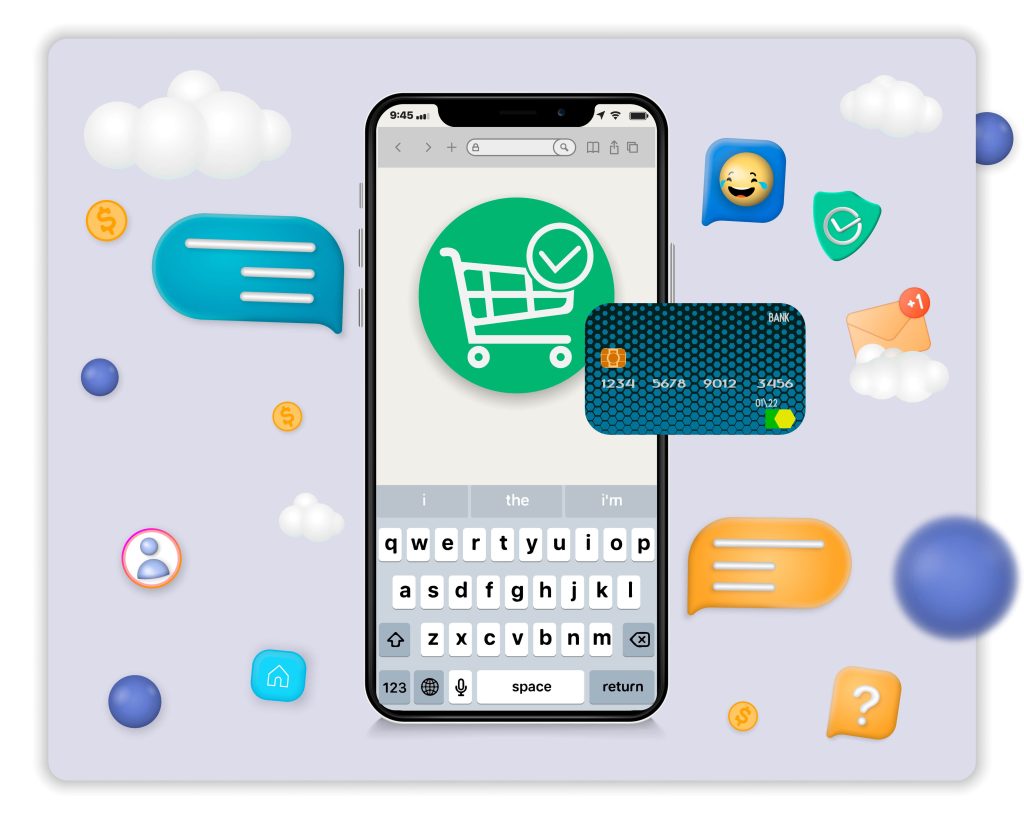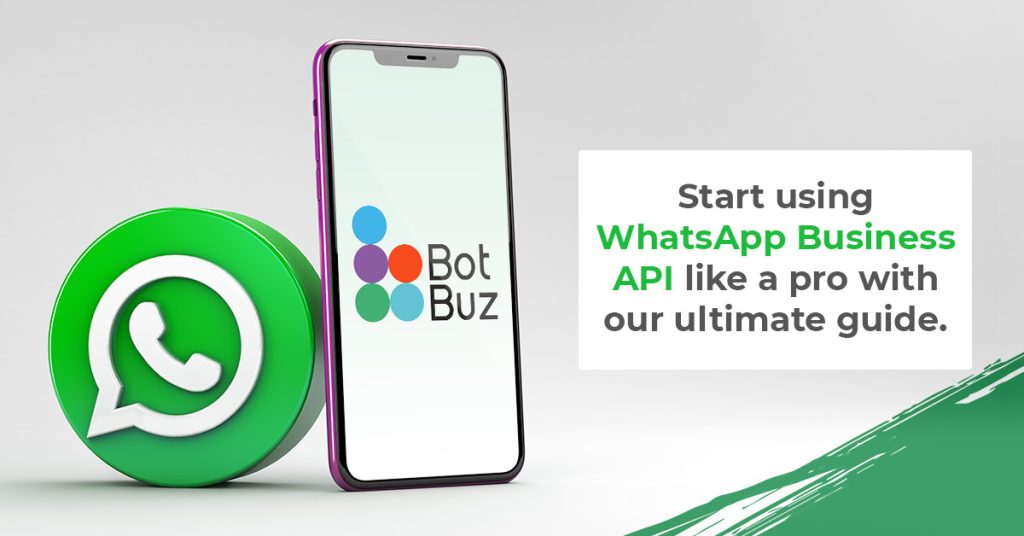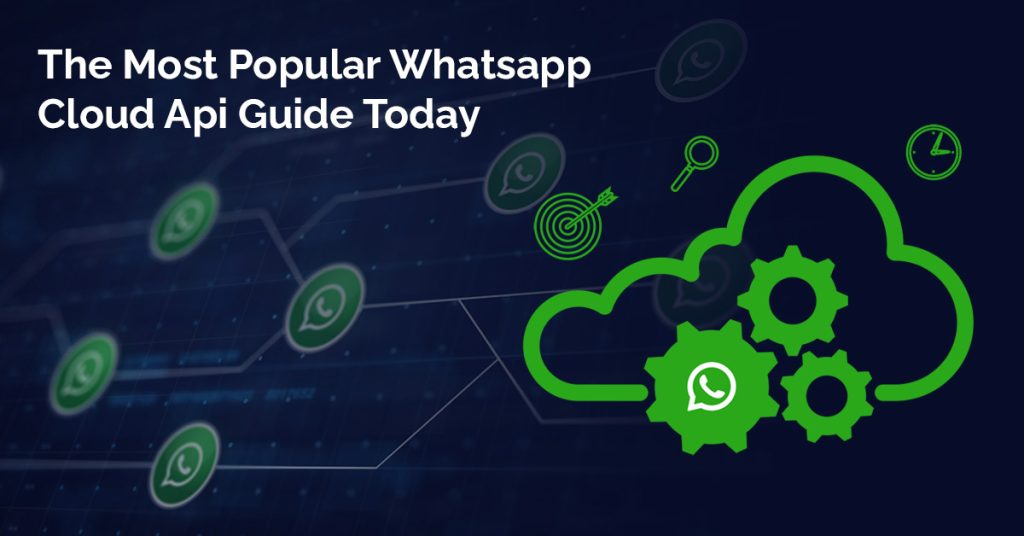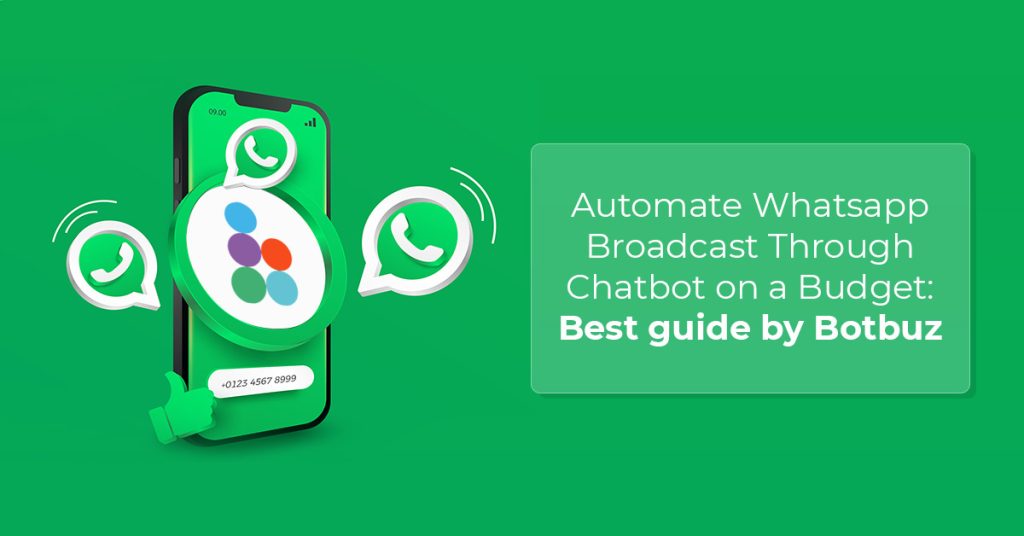- WhatsApp Ecommerce :
- Why is WhatsApp Ecommerce Growing :
- Benefits of WhatsApp Ecommerce for Business :
- Why WhatsApp for Ecommerce ?
- Uisng WhatsApp Business API for WhatsApp Ecommerce store :
- Enhancing Ecommerce Functionalities with the WhatsApp Business API :
- Strategies for Selling on WhatsApp :
- Payment Options and Security :
- Leveraging Automation and Chatbots :
WhatsApp Ecommerce :
WhatsApp, the world’s most popular messaging app. With over 2 billion active users, it has emerged as a powerful platform for ecommerce. Businesses are using WhatsApp to connect with customers, showcase products & services & process orders.
WhatsApp Ecommerce is the use of WhatsApp to facilitate online shopping. This can involve businesses using WhatsApp to :
What is WhatsApp Ecommerce?
- Chat with customers directly to answer questions, provide product information, and process orders.
- Create and share product catalogs with rich media content like images, videos & descriptions.
- Send promotional messages and offers to targeted customer segments.
- Provide customer support through quick and easy access to customer service representatives.
Why is WhatsApp Ecommerce Growing?
WhatsApp Ecommerce is gaining popularity due to several factors :
High user penetration : WhatsApp has over 2 billion active users, making it a ubiquitous platform for businesses to reach their target audience.
User engagement : WhatsApp users are highly engaged. With over 90% of messages being opened within 3 minutes of being sent.
Personalization : WhatsApp allows for direct, one-on-one communication with customers. Thus, enabling businesses to provide a personalized shopping experience.
Ease of use : WhatsApp is simple to use, even for non-technical users. Thus, making it an accessible platform for businesses of all sizes.
Understanding the rise of WhatsApp as an ecommerce platform : The rise of WhatsApp as an ecommerce platform can be attributed to several factors:
The increasing popularity of mobile shopping : More and more people are shopping online using their mobile devices, and WhatsApp is a convenient platform for this type of shopping.
The demand for personalized shopping experiences : Consumers today expect a personalized shopping experience, and WhatsApp allows businesses to connect with customers on a personal level.
The growth of social commerce : Social commerce, the use of social media platforms to buy and sell products, is on the rise, and WhatsApp is a leading social media platform.
Benefits of WhatsApp Ecommerce for business :
- Increased reach and customer engagement : WhatsApp allows businesses to reach a wider audience & engage with customers more effectively.
- Improved customer experience : WhatsApp provides a convenient and personalized shopping experience for customers.
- Reduced costs : WhatsApp is a cost-effective way for businesses to reach and engage with customers.
- Increased sales : WhatsApp can help businesses increase sales by providing a direct channel to customers.
Businesses can use WhatsApp Ecommerce to :
- Launch new products and services : WhatsApp is a great platform to launch new products and services to a targeted audience.
- Run promotions and discounts : Businesses can use WhatsApp to run promotions and discounts to drive sales.
- Provide customer support : WhatsApp can be used to provide customer support, answer questions, and resolve issues.
- Build customer loyalty : WhatsApp can be used to build customer loyalty by providing a personalized and engaging shopping experience.
Real-time customer interactions : Businesses can have real-time conversations with customers. Thus, helping to build trust and rapport.
- Secure payment options : WhatsApp supports a variety of secure payment options. Making it easy for customers to pay for their purchases.
- Easy order tracking : Customers can easily track their orders through WhatsApp.
- Integration with other business systems : WhatsApp can be integrated with other business systems, such as CRM and ERP systems.
Why WhatsApp for Ecommerce ?
WhatsApp, with its massive user base and intuitive messaging features, has emerged as a powerful platform for Ecommerce, offering numerous advantages for businesses seeking to enhance their online sales and customer engagement. Here are some of the compelling reasons why businesses should consider using WhatsApp for Ecommerce :
- Wide Reach and Targeted Engagement : WhatsApp boasts over 2 billion active users globally, providing businesses with unparalleled access to a vast and diverse customer base. This extensive reach allows businesses to target their marketing efforts effectively, reaching the right audience with personalized messages and product promotions.
- Enhanced Personalization and Customer Experience : WhatsApp’s one-on-one chat feature enables businesses to interact with customers on a personal level, providing a more tailored and engaging shopping experience. Businesses can answer questions promptly, address concerns, and provide product recommendations, fostering a sense of connection and trust with customers.
- Seamless Communication and Order Processing : WhatsApp facilitates seamless communication between businesses and customers, allowing for real-time inquiries, product information sharing, and order processing. Customers can easily check product availability, inquire about shipping details, and track their orders, streamlining the entire shopping process.
- Rich Media and Interactive Catalogs : WhatsApp allows businesses to showcase their products and services through rich media content, including high-resolution images, videos, and detailed product descriptions. These interactive catalogs provide customers with a more immersive and engaging shopping experience, enhancing their understanding of products and encouraging purchases.
- Cost-Effective Marketing and Sales Channel : WhatsApp offers a cost-effective marketing and sales channel compared to traditional methods like email marketing or SMS campaigns. Businesses can reach a larger audience and engage with customers more effectively without incurring significant expenses.
- Real-Time Customer Feedback and Insights : WhatsApp provides a direct channel for gathering customer feedback and insights, allowing businesses to gain valuable information about product preferences, customer satisfaction, and areas for improvement. This real-time feedback loop helps businesses refine their strategies and offerings to better align with customer needs.
- Efficient Customer Support and Issue Resolution : WhatsApp serves as an efficient platform for providing customer support, enabling businesses to address customer inquiries, resolve issues promptly, and maintain a positive customer experience. Customers can easily reach out to businesses for assistance, fostering trust and loyalty.
- Integration with Existing Business Systems : WhatsApp’s API allows businesses to integrate it with their existing e-commerce platforms, CRM systems, and payment gateways, streamlining operations and providing a seamless experience for both customers and businesses.
WhatsApp presents a compelling opportunity for businesses to enhance their Ecommerce efforts, reaching a wider audience, providing personalized customer service, and streamlining the shopping experience. With its massive user base, intuitive messaging features, and cost-effectiveness, WhatsApp has the potential to revolutionize Ecommerce and transform the way businesses connect with their customers.
Using WhatsApp Business API for WhatsApp Ecommerce store :
The WhatsApp Business API provides businesses with a powerful tool to enhance their WhatsApp Ecommerce operations and engage with customers more effectively. By integrating the API, businesses can seamlessly integrate WhatsApp into their existing systems, automate tasks and provide a personalized and engaging shopping experience for their customers.

Key Functionalities and Capabilities of the WhatsApp Business API :
Automated Message Sending : Businesses can send automated messages to customers, such as order confirmations, shipping notifications, and promotional offers. This automates routine tasks and frees up customer service agents to handle more complex inquiries.
Template Messages for Structured Conversations : Template messages allow businesses to send structured messages with customizable elements, such as product information, order details, and payment options. This ensures consistent and organized communication with customers.
Media Sharing and Product Catalogs : Businesses can share rich media content, including images, videos, and documents, to showcase products and provide detailed information to customers. This enhances the product browsing experience and encourages informed purchase decisions.
Customer Support and Order Management : The API enables businesses to provide real-time customer support, address inquiries and manage orders through WhatsApp. Customers can easily track their orders, resolve issues, and receive assistance from customer service representatives.
Integration with Existing Systems : The WhatsApp Business API can be integrated with existing Ecommerce platforms, CRM systems and payment gateways, creating a seamless and unified experience for both businesses and customers.
Enhancing E Commerce Functionalities with the WhatsApp Business API :
Personalized Product Recommendations : Businesses can utilize customer data and purchase history to send personalized product recommendations and promotions via WhatsApp. This targeted approach increases the relevance of marketing messages and encourages customer engagement.
Abandoned Cart Reminders : Automate reminders to customers who have left items in their shopping carts, encouraging them to complete their purchases. This can help reduce cart abandonment rates and boost sales.
Order Status Updates and Delivery Notifications : Provide real-time order status updates and delivery notifications to customers directly through WhatsApp. This keeps customers informed and reduces the need for manual inquiries.
Post-Purchase Feedback and Reviews : Gather feedback and reviews from customers through WhatsApp, providing valuable insights into product satisfaction and areas for improvement. This feedback can be used to refine product offerings and enhance the overall customer experience.
Exclusive Offers and Discounts for WhatsApp Users : Reward WhatsApp users with exclusive offers and discounts to encourage them to engage with the brand on this platform. This loyalty strategy can drive sales and increase brand affinity.
By leveraging the WhatsApp Business API, businesses can transform WhatsApp into a powerful Ecommerce tool, providing a personalized, engaging and efficient shopping experience for their customers, ultimately driving sales and fostering customer loyalty.
Strategies for Selling on WhatsApp :
WhatsApp has emerged as a powerful platform for businesses to connect with customers, showcase products and services and process orders. With its massive user base and intuitive messaging features, WhatsApp offers a unique opportunity for businesses to build personalized relationships with customers and enhance the shopping experience.
To effectively utilize WhatsApp for selling products or services, businesses can adopt various strategies that emphasize customer engagement, personalized interactions and effective product showcasing.
Building Customer Relationships through Personalized Messaging :
- Initiate personalized conversations : Start by introducing your business and expressing appreciation for their interest. Use their name and make inquiries about their needs or preferences.
- Address customer inquiries promptly : Respond to customer inquiries quickly and efficiently. This demonstrates your responsiveness and willingness to assist them.
- Provide personalized product recommendations : Based on customer interactions and purchase history, suggest products or services that align with their interests. This personalized approach enhances the shopping experience.
- Offer exclusive deals and discounts : Reward loyal customers and encourage new ones by offering exclusive deals and discounts through WhatsApp. This fosters engagement and drives sales.
- Celebrate customer milestones : Acknowledge and celebrate customer milestones, such as birthdays or anniversaries, to build stronger relationships and foster loyalty.
Showcasing Products/Services Effectively Using Multimedia Messages :
- Utilize high-quality images and videos : Showcase your products or services using high-resolution images and engaging videos. Visuals capture attention and provide a more immersive experience.
- Create detailed product descriptions : Provide detailed product descriptions that highlight key features, benefits and usage instructions. This helps customers make informed purchase decisions.
- Share customer testimonials and reviews : Share positive customer testimonials and reviews to build trust and credibility. Social proof encourages potential customers to try your products or services.
- Host interactive product demos or Q&A sessions : Organize live product demos or Q&A sessions to engage customers and address their questions in real-time.
- Share behind-the-scenes glimpses : Provide customers with an inside look at your company culture, production process, or team members to build a sense of connection and brand loyalty.
By implementing these strategies, businesses can effectively leverage WhatsApp to cultivate strong customer relationships, showcase their products or services in an engaging manner, and ultimately drive sales and enhance their e-commerce presence.
Payment Options and Security :
WhatsApp offers a variety of secure payment options to facilitate seamless and trustworthy transactions for both businesses and customers. The platform integrates with various payment partners to provide a range of convenient payment methods, while employing robust security measures to protect sensitive financial information.

Payment Options Available on WhatsApp :
Unified Payments Interface (UPI) : UPI is a real-time payment system widely used in India, enabling customers to directly transfer funds from their bank accounts to businesses using WhatsApp.
Credit or Debit Cards : Customers can securely link their credit or debit cards to their WhatsApp accounts to make payments directly within the app.
Mobile Wallets : Popular mobile wallets like Paytm and Google Pay can be integrated with WhatsApp, allowing customers to make payments using their stored balances.
Payment Links : Businesses can generate payment links that can be shared with customers via WhatsApp messages. Customers can click on these links to securely complete their payments using their preferred payment methods.
Ensuring Secure Transactions for Customers :
End-to-End Encryption : WhatsApp employs end-to-end encryption to protect all messages, including payment-related information, ensuring complete confidentiality and privacy.
Tokenization : Sensitive payment information, such as credit card details, is replaced with secure tokens, preventing the storage of actual financial data on WhatsApp servers.
Two-Factor Authentication (2FA) : Businesses can implement 2FA for payment processing, adding an extra layer of security by requiring additional verification beyond just a password.
Fraud Detection and Prevention : WhatsApp utilizes advanced fraud detection algorithms to identify and block suspicious transactions, protecting both businesses and customers.
Clear Payment Policies and Terms : Businesses should clearly outline their payment policies and terms, including refund procedures and dispute resolution processes, ensuring transparency and customer protection.
By integrating secure payment options and implementing robust security measures, WhatsApp provides a safe and reliable platform for businesses to conduct e-commerce transactions, fostering trust and confidence among customers.
Leveraging Automation and Chatbots :
Implementing Botbuz Chatbot for Customer Support and Sales Assistance :
Botbuz chatbots offer businesses a powerful tool to enhance customer support and sales assistance, providing real-time responses, automating routine tasks, and streamlining operations. By integrating Botbuz chatbots into their WhatsApp business presence, businesses can:
Provide 24/7 customer support : Botbuz chatbots can handle customer inquiries 24 hours a day, 7 days a week, ensuring that customers always have someone to reach out to for assistance.
Automate order processing and frequently asked questions : Botbuz chatbots can automate routine tasks such as order processing, providing order status updates, and answering frequently asked questions, freeing up customer service agents to handle more complex issues.
Personalize customer interactions : Botbuz chatbots can utilize customer data and purchase history to personalize interactions, providing targeted product recommendations and addressing customers by name.
Gather customer feedback and insights : Botbuz chatbots can collect customer feedback and insights, helping businesses understand customer preferences and identify areas for improvement.
Upsell and cross-sell products : Botbuz chatbots can suggest complementary products or services based on customer purchase history, increasing sales opportunities.
Streamlining Processes through Automation for Efficient Operations :
Automation plays a crucial role in streamlining processes and enhancing operational efficiency.
Businesses can leverage automation to :
Automate repetitive tasks : Automate repetitive tasks such as data entry, order processing, and customer notifications, reducing human error and freeing up time for more strategic work.
Optimize inventory management : Automate inventory tracking and alerts, ensuring that businesses always have the right amount of stock and preventing stockouts.
Reduce manual data entry : Automate data entry tasks such as capturing customer information and processing payments, eliminating errors and improving data accuracy.
Generate reports and insights : Automate report generation and data analysis, providing businesses with valuable insights into sales trends, customer behavior, and operational performance.
Integrate with existing systems : Automate workflows and data exchange between different business systems, creating a seamless and efficient operational process.
By implementing Botbuz chatbots and leveraging automation, businesses can streamline operations, enhance customer support, and improve overall efficiency, leading to increased productivity, cost savings, and customer satisfaction.




